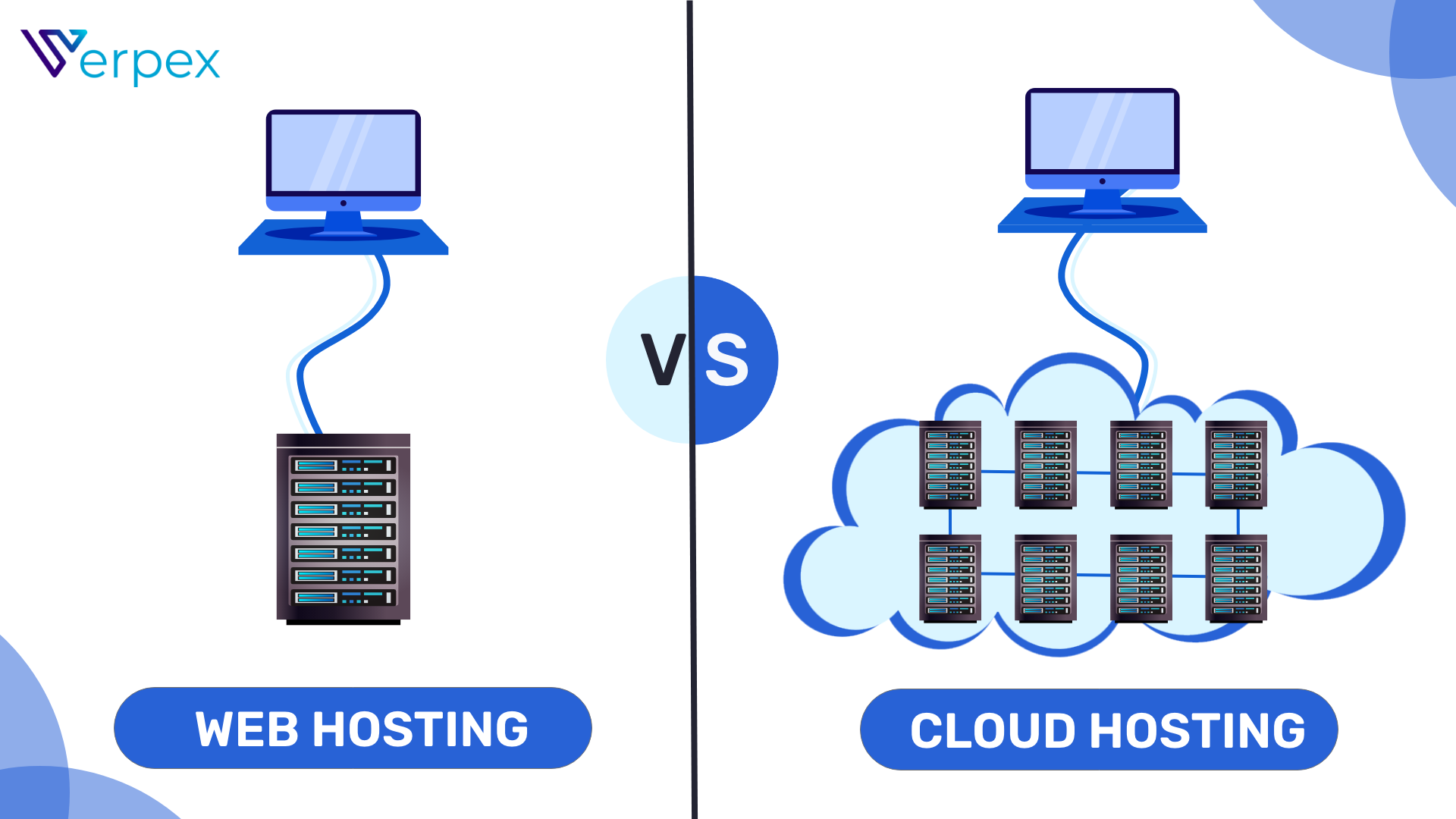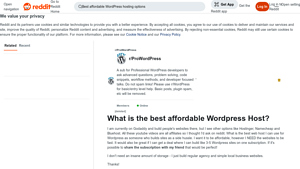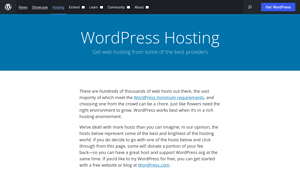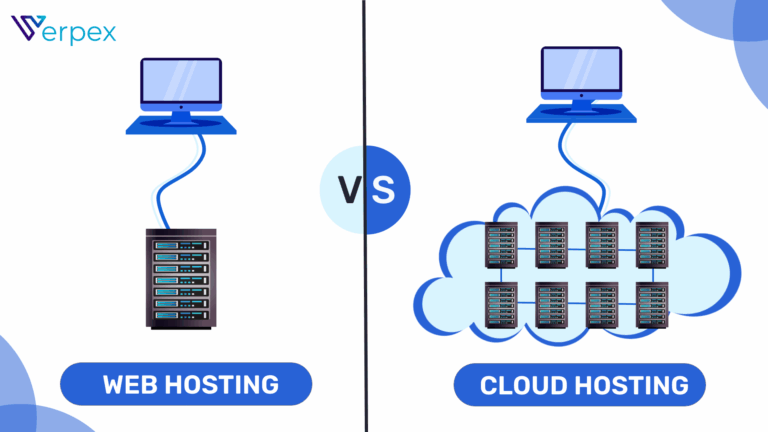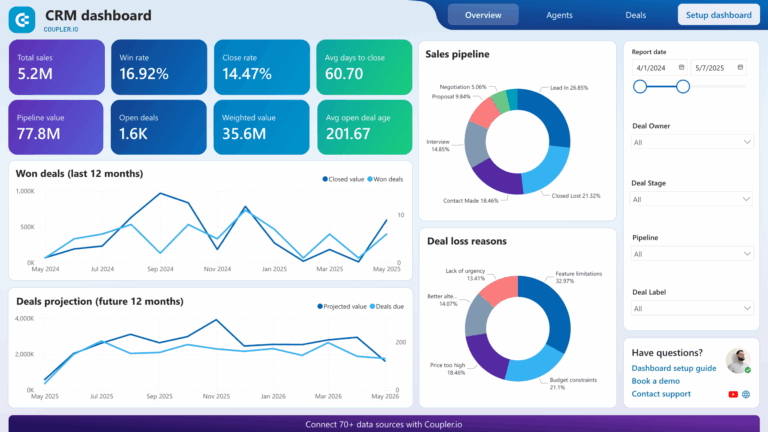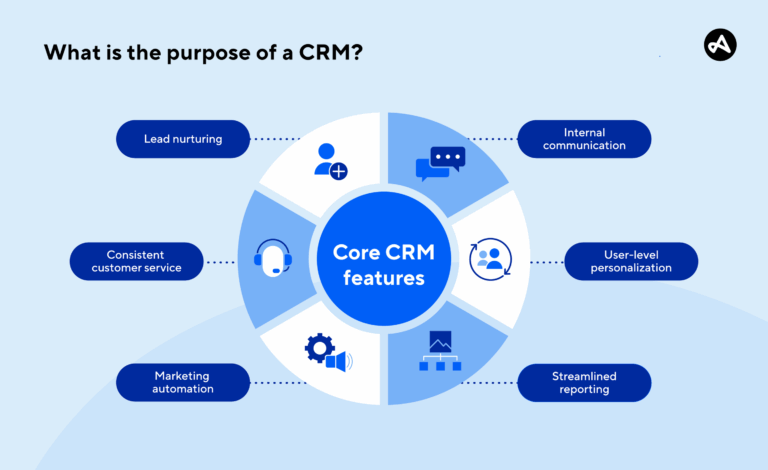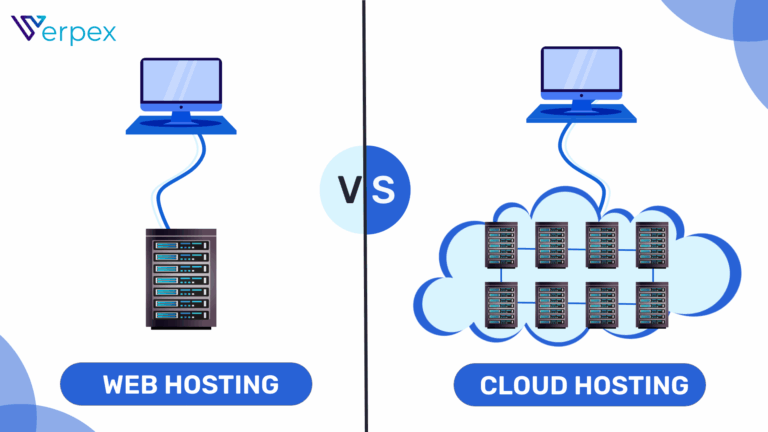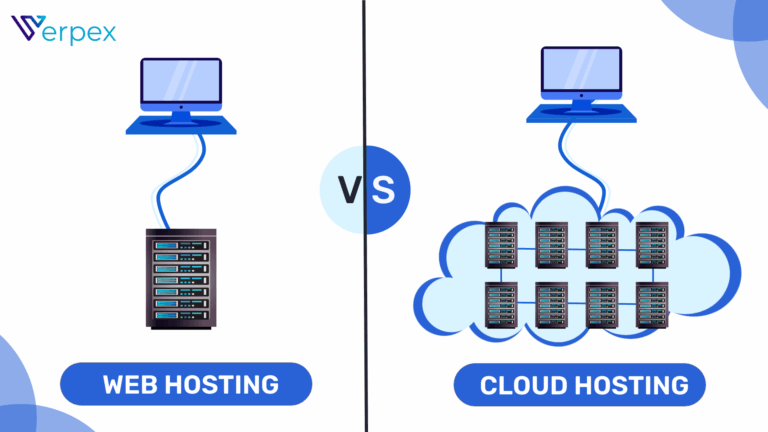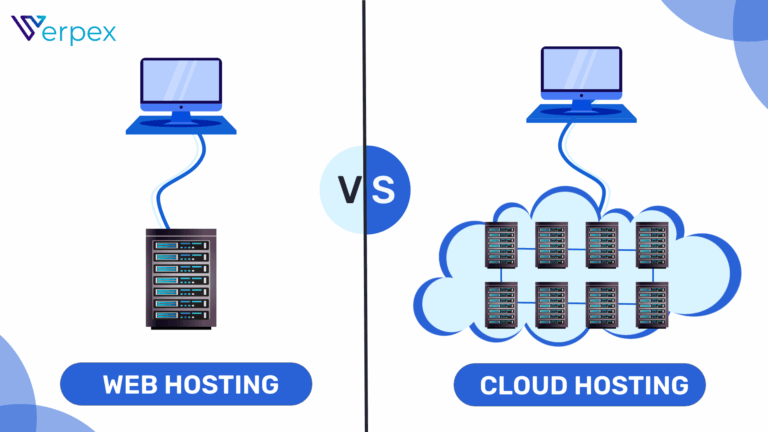Choosing a WordPress Hosting Service Provider: Our Top Picks for 2025
Choosing Your Digital Home: An Introduction to Web Hosting
Choosing the right web hosting service is a critical foundation for any successful website. Whether you are a small business owner, a passionate blogger, a developer, or simply an individual looking to establish an online presence, the hosting provider you select can significantly impact your site’s performance, reliability, and growth potential. However, with a plethora of options available—from shared hosting to dedicated servers and everything in between—many users find themselves overwhelmed by the choices.
This confusion often stems from the varying needs of different websites. A personal blog might thrive on affordable shared hosting, while an e-commerce site with high traffic demands may require robust managed WordPress hosting or cloud solutions. Each hosting type comes with its own set of features, pricing structures, and levels of technical support, making it essential to understand your specific requirements before making a decision.
The goal of this guide is to serve as a comprehensive, one-stop resource for understanding the various types of web hosting available. We aim to demystify the technical jargon and provide clear comparisons of the top hosting providers in the industry. By highlighting key performance metrics, pricing, and unique selling propositions, we will empower you to make an informed choice that aligns with your goals and budget.
In the sections that follow, you’ll find detailed analyses of different hosting types, including shared, VPS, dedicated, and managed WordPress hosting. We will also explore essential factors to consider when selecting a hosting provider, such as uptime guarantees, customer support, scalability options, and security features. Additionally, we will present a curated list of top hosting providers based on extensive performance testing, ensuring that you have access to reliable and high-quality options.
Ultimately, the right web hosting service can be the difference between a thriving online presence and a frustrating experience fraught with downtime and slow loading times. By leveraging the insights provided in this guide, you can navigate the complexities of web hosting with confidence, ensuring that your digital home is built on a solid foundation. Whether you’re just starting out or looking to switch providers, this guide is designed to help you find the perfect hosting solution tailored to your unique needs.
The Best WordPress Hosting Service Providers of 2025
5. Bluehost – Best Value for WordPress Hosting!
In the Reddit discussion titled “What is the best affordable WordPress Host?”, users highlight WPX as a top choice for managed WordPress hosting, starting at $20 per month. It is particularly recommended for small to medium-sized content websites, making it an ideal option for agencies and individuals seeking reliable performance without breaking the bank. The platform’s focus on affordability combined with quality service positions it as a strong contender in the budget hosting market.
- Website: reddit.com
- Company Age: Approx. 20 years (domain registered in 2005)
5. Bluehost – Top Choice for Speed and Security
Bluehost is a top choice for WordPress hosting in 2025, providing reliable, fully managed plans that cater to both beginners and seasoned users. With pricing starting at just $2.95 per month, it combines affordability with robust performance features, including fast loading times and enhanced security measures. Ideal for those looking to build and manage a WordPress site effortlessly, Bluehost ensures a seamless hosting experience with excellent customer support.
- Website: bluehost.com
- Company Age: Approx. 23 years (domain registered in 2002)
7. Bluehost – The Ultimate Choice for WordPress Enthusiasts!
Bluehost, recognized as WordPress.org’s longest-running recommended host, provides a robust platform tailored for WordPress users, supporting millions of websites. Its hosting solutions are designed to enhance performance and reliability, making it an ideal choice for both beginners and experienced developers. With affordable plans and optimized features, Bluehost stands out as a dependable option for those seeking to build and manage WordPress sites effectively.
- Website: wordpress.org
- Company Age: Approx. 22 years (domain registered in 2003)
5 Reasons Kinsta is the Ultimate Managed Hosting for WordPress
Kinsta offers premium managed WordPress hosting designed for performance and reliability, featuring 200% faster site speeds and global data centers. With robust security measures, including free SSL and DDoS protection, Kinsta ensures a secure hosting environment. Their 24/7/365 expert support caters to both beginners and experienced developers, making it an ideal choice for those seeking high-quality hosting solutions. New users can enjoy their first month free, allowing for a risk-free trial of their services.
- Website: kinsta.com
- Company Age: Approx. 12 years (domain registered in 2013)
What is Web Hosting? A Plain English Guide
Web hosting is essentially a service that allows individuals and organizations to make their websites accessible on the internet. To understand this concept better, think of web hosting as renting a space to build your house. Just like you need a piece of land to construct your home, you need web hosting to store your website’s files and make it available to visitors online.
What is a Server?
A server is a powerful computer that stores your website’s files, including images, text, videos, and other content. When someone types your website’s address (URL) into their browser, their computer sends a request to the server where your website is hosted. The server then retrieves the necessary files and sends them back to the visitor’s browser, allowing them to view your website.
In our analogy, think of the server as the actual structure of your house. Just as a house has rooms to hold furniture, your server has storage space for all the data that makes up your website. Servers can be quite complex and come in various types, such as shared servers, dedicated servers, and cloud servers, each catering to different needs and budgets.
How Do Domains and Hosting Connect?
A domain name is your website’s address on the internet, like www.yourbusiness.com. It’s what people type into their browsers to find your site. However, a domain name itself doesn’t contain any content. Instead, it acts as a pointer that directs visitors to the server where your website is stored.
Continuing with our analogy, think of the domain name as the street address of your house. When someone wants to visit you, they need to know your address to find the right location. Similarly, when someone wants to visit your website, they need to know the domain name to access the server where your site is hosted.
To connect a domain to your hosting service, you typically need to update your domain settings to point to your hosting provider’s servers. This process is akin to putting up a sign with your address that directs visitors to your home. Once this connection is made, anyone who types in your domain name will be taken directly to your website.
Why Do I Need a Hosting Service?
Having a hosting service is crucial for anyone looking to establish a presence online. Here are a few reasons why:
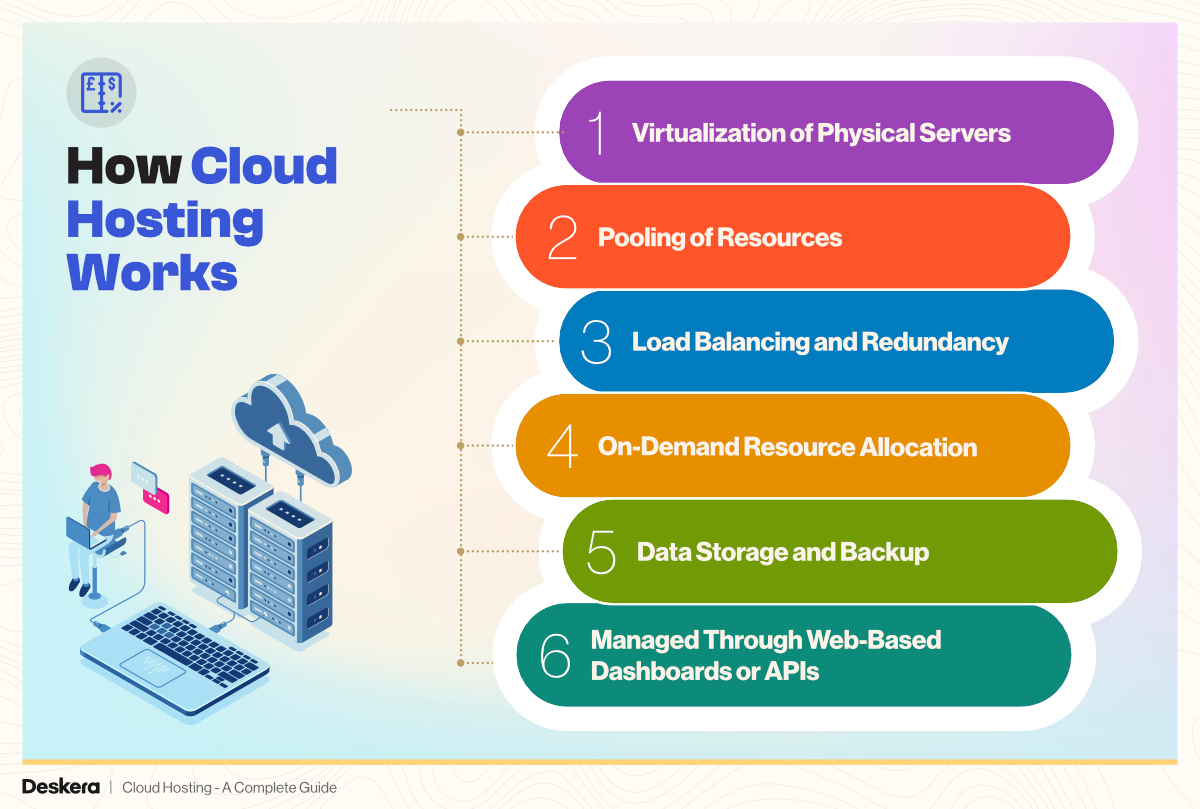
-
Accessibility: Just like a house provides shelter and a space for you to live, web hosting provides the necessary environment for your website to exist on the internet. Without hosting, your website files would have no place to reside, making it impossible for anyone to access your site.
-
Performance: A good hosting service ensures that your website loads quickly and efficiently. Just as a well-constructed house allows for comfortable living, a reliable hosting service guarantees that your website performs optimally, providing a better experience for your visitors.
-
Support and Security: Hosting providers often offer technical support and security measures to protect your website from potential threats. Think of this as having a security system installed in your home to keep it safe. With a hosting service, you can focus on building your site without worrying about underlying technical issues.
-
Scalability: As your website grows, you may need more resources to handle increased traffic. A good hosting service allows you to upgrade your plan as necessary, similar to how you might expand your home or build additional rooms as your family grows.
-
Email Services: Many hosting providers offer email accounts associated with your domain name (e.g., [email protected]). This is akin to having a mailbox at your home where visitors can send you letters. A professional email address enhances your credibility and helps you communicate effectively with clients and customers.
In summary, web hosting is a vital component of having an online presence. It serves as the foundation for your website, ensuring that it is accessible, secure, and performing well for your visitors. Whether you are a small business owner, a blogger, or an individual launching a personal site, choosing the right hosting service is essential for your online success.

Types of Web Hosting: A Detailed Comparison
| Hosting Type | Best For | Performance | Price Range | Key Pro | Key Con |
|---|---|---|---|---|---|
| Shared Hosting | Beginners, bloggers, small sites | Moderate to Good | $2.69 – $10/month | Cost-effective, easy to use | Limited resources, slower performance |
| VPS Hosting | Growing websites, developers | Good to Excellent | $20 – $100/month | More control and resources than shared | Higher cost, requires technical knowledge |
| Dedicated Server Hosting | Large businesses, high-traffic sites | Excellent | $80 – $500/month | Full control, maximum performance | Very expensive, requires management skills |
| Cloud Hosting | Scalability needs, apps | Excellent | $10 – $300/month | High uptime, flexible resources | Can be complex to set up |
| Managed WordPress Hosting | WordPress sites | Excellent | $20 – $100/month | Optimized for WordPress, great support | More expensive than shared hosting |
Shared Hosting
What It Is:
Shared hosting is a type of web hosting where multiple websites are hosted on a single server. This means that resources such as RAM, CPU, and bandwidth are shared among all the sites on that server. It is the most common and affordable type of hosting available.
Who Should Use It:
Shared hosting is ideal for beginners, bloggers, and small business owners who are just starting and don’t expect high traffic. It is also suitable for personal websites, portfolios, and hobby sites.
Pros:
– Cost-Effective: Shared hosting plans are very affordable, making them accessible for anyone just starting out.
– User-Friendly: Most shared hosting providers offer easy-to-use control panels, making site management simple for beginners.
– No Maintenance Required: The hosting provider manages the server, so users do not need to worry about server maintenance or updates.
Cons:
– Limited Resources: Since resources are shared, high traffic to one site can affect the performance of others on the same server.
– Slower Performance: Shared hosting often results in slower loading times, especially during peak usage times.
– Less Control: Users have limited access to server configurations and may face restrictions on certain applications or scripts.
VPS Hosting
What It Is:
VPS (Virtual Private Server) hosting is a type of hosting where a physical server is divided into multiple virtual servers. Each VPS runs its own operating system and has dedicated resources, offering more control and flexibility than shared hosting.
Who Should Use It:
VPS hosting is suitable for growing websites, developers, and small to medium-sized businesses that need more control over their server environment without the cost of dedicated hosting.
Pros:
– More Control: Users have root access to their VPS, allowing for custom configurations and installations.
– Scalability: VPS hosting can easily be upgraded to accommodate growth in traffic and resource needs.
– Better Performance: With dedicated resources, VPS hosting offers better performance compared to shared hosting.
Cons:
– Higher Cost: VPS hosting is more expensive than shared hosting, making it less ideal for those on a tight budget.
– Technical Knowledge Required: Users need a certain level of technical knowledge to manage and configure their VPS effectively.
– Potential for Overhead: If not managed properly, a VPS can become overloaded, leading to performance issues.
Dedicated Server Hosting
What It Is:
Dedicated server hosting provides users with an entire server dedicated to their website or application. This type of hosting offers maximum performance, security, and control.
Who Should Use It:
Dedicated hosting is best for large businesses, e-commerce sites, and high-traffic websites that require extensive resources and high levels of security.
Pros:
– Full Control: Users have complete control over server configurations, software installations, and security settings.
– Maximum Performance: Dedicated servers offer high performance and reliability, making them suitable for resource-intensive applications.
– Enhanced Security: With no other sites on the server, there is a lower risk of security breaches from neighboring sites.
Cons:
– Very Expensive: Dedicated hosting plans can be significantly more costly than other hosting types, which may not be feasible for smaller businesses.
– Requires Management Skills: Users need advanced technical skills to manage the server, or they may need to hire a system administrator.
– Resource Underutilization: Many users may not fully utilize the resources available on a dedicated server, leading to wasted costs.
Cloud Hosting
What It Is:
Cloud hosting uses a network of virtual servers (the cloud) to host websites. It offers flexibility, scalability, and reliability by distributing resources across multiple servers.
Who Should Use It:
Cloud hosting is ideal for businesses with fluctuating traffic, web applications, and those that need high availability and scalability.
Pros:
– High Uptime: Cloud hosting providers typically offer excellent uptime due to the redundancy of multiple servers.
– Scalability: Resources can be easily adjusted based on traffic needs, allowing for seamless scaling.
– Pay-As-You-Go Pricing: Many cloud hosting services offer pay-as-you-go models, which can save costs during low-traffic periods.
Cons:
– Complex Setup: Setting up cloud hosting can be complex and may require technical expertise.
– Variable Costs: While cloud hosting can be cost-effective, variable pricing can lead to unexpectedly high bills during traffic spikes.
– Less Control: Depending on the provider, users may have less control over their server environment compared to dedicated or VPS hosting.
Managed WordPress Hosting
What It Is:
Managed WordPress hosting is a specialized hosting service optimized for WordPress websites. Providers manage all aspects of hosting, including security, updates, backups, and performance.
Who Should Use It:
Managed WordPress hosting is best for individuals and businesses running WordPress sites who want hassle-free management and optimal performance.
Pros:
– Optimized for WordPress: Managed hosting is tailored specifically for WordPress, ensuring high performance and security.
– Expert Support: Users benefit from specialized support from WordPress experts, which can be invaluable for troubleshooting.
– Automatic Updates: Managed hosting typically includes automatic updates for WordPress core, themes, and plugins.
Cons:
– Higher Cost: Managed WordPress hosting is usually more expensive than shared hosting, making it less suitable for budget-conscious users.
– Limited to WordPress: This type of hosting is only suitable for WordPress sites, so users with other types of websites would need a different solution.
– Less Control: Some managed hosting providers impose restrictions on plugins and custom configurations for performance and security reasons.
In summary, the choice of web hosting largely depends on your specific needs, technical expertise, and budget. Shared hosting is perfect for beginners, VPS hosting caters to growing sites, dedicated servers are best for large enterprises, cloud hosting offers scalability, and managed WordPress hosting provides optimal performance for WordPress sites. Understanding these options will help you make an informed decision for your website.
How to Choose a Hosting Provider: A 5-Point Buyer’s Guide
Performance and Uptime
When selecting a hosting provider, performance and uptime should be at the forefront of your decision-making process. These factors directly influence your website’s speed, user experience, and search engine rankings.
Importance of Performance
Performance refers to how quickly your website loads for visitors. A faster website leads to a better user experience, lower bounce rates, and higher conversion rates. Research shows that even a one-second delay in loading time can result in a significant loss in revenue.
What to Look For:
– Time to First Byte (TTFB): This metric indicates the time taken for the server to start sending data after a request. Look for providers with TTFB under 500ms for optimal performance.
– Load Handling: Ensure the hosting provider can handle traffic spikes without slowdowns. This is particularly important if you anticipate seasonal traffic surges or promotional events.
– Uptime Guarantee: A reputable hosting provider should offer at least a 99.9% uptime guarantee. This ensures your website remains accessible to users most of the time.
Customer Support
Reliable customer support is crucial, especially if you’re not technically inclined. Issues can arise at any time, and having access to knowledgeable support can save you time and frustration.
Importance of Customer Support
Good customer support helps you resolve problems quickly, minimizing downtime and ensuring a smooth user experience. The faster you can get assistance, the less impact any issues will have on your business.
What to Look For:
– Availability: Look for 24/7 support through multiple channels, such as live chat, email, and phone. This ensures you can get help whenever you need it.
– Knowledge Base and Resources: A comprehensive knowledge base with tutorials and guides can empower you to solve minor issues independently.
– Reputation: Check reviews and ratings on platforms like Trustpilot or G2 to gauge the quality of customer support offered by potential providers.
Pricing and Renewal Rates
While initial pricing is often a key factor in choosing a hosting provider, it’s essential to consider renewal rates and what features are included at each pricing tier.
Importance of Pricing
Choosing a hosting provider based solely on the lowest initial cost can lead to unexpected expenses down the line. Many providers offer low introductory rates that increase significantly upon renewal.
What to Look For:
– Initial Cost vs. Renewal Rates: Compare the renewal prices of different hosting providers. Some may offer low introductory prices but have high renewal rates.
– Included Features: Ensure that the hosting plan includes essential features such as a free domain, SSL certificate, and backups. This can help you avoid additional costs.
– Money-Back Guarantee: A solid money-back guarantee allows you to test the hosting service risk-free. Look for at least a 30-day guarantee.
Security Features (SSL, Backups)
Security is a paramount concern for any website owner. An insecure site can lead to data breaches, loss of customer trust, and even legal consequences.
Importance of Security
Security features protect your website from cyber threats and ensure that sensitive data is kept safe. Having robust security measures in place can also enhance your site’s reputation and SEO performance.
What to Look For:
– SSL Certificates: An SSL certificate encrypts data transferred between your website and its visitors, which is essential for e-commerce sites and any site collecting user information. Ensure that your hosting provider offers free SSL certificates.
– Regular Backups: Regular backups are critical for recovering your site in case of data loss or security incidents. Look for hosts that provide automated backups and easy restoration options.
– DDoS Protection: Distributed Denial of Service (DDoS) attacks can take your site offline. Choose a provider that offers DDoS protection as part of their security features.
Scalability and Future Growth
As your website grows, your hosting needs may change. Choosing a hosting provider that can scale with your business is vital for long-term success.
Importance of Scalability
Scalability ensures that your hosting provider can accommodate increased traffic, additional websites, and new features as your business expands. This flexibility can save you the hassle of migrating to a new provider later.
What to Look For:
– Upgrade Options: Check whether the hosting provider offers easy upgrade paths, such as moving from shared to VPS or dedicated hosting. This flexibility allows you to adjust your resources without significant downtime.
– Resource Allocation: Look for plans that allow you to easily add resources like bandwidth and storage as needed, rather than requiring a complete plan change.
– Multi-Site Hosting: If you plan to manage multiple websites, ensure that your hosting provider supports multi-site hosting options, allowing you to manage everything from a single dashboard.
Conclusion
Choosing the right hosting provider is a critical decision that can impact your website’s performance, security, and growth potential. By considering factors such as performance and uptime, customer support, pricing and renewal rates, security features, and scalability, you can make a well-informed choice that aligns with your specific needs. Take the time to research and compare different providers to find the best fit for your small business, blog, or development project.
Key Hosting Terms and Jargon Explained
cPanel
Definition:
cPanel is a web-based control panel that allows users to manage their web hosting accounts easily. It provides a graphical interface and automation tools designed to simplify the process of hosting a website.
Features of cPanel:
- File Management: Users can upload, download, and manage files through an intuitive file manager.
- Domain Management: Users can add, remove, and manage domains and subdomains.
- Email Management: Users can create email accounts, set up email forwarding, and manage spam filters.
- Database Management: cPanel includes tools like phpMyAdmin for managing databases.
- Security Features: Options for SSL installation, password protection, and IP blocking are available.
SSL Certificate
Definition:
An SSL (Secure Socket Layer) certificate is a digital certificate that authenticates the identity of a website and encrypts information sent between the server and the user’s browser. This helps protect sensitive data, such as credit card numbers and personal information.
Importance of SSL Certificates:
- Data Encryption: SSL ensures that all data transferred between the user and the website is encrypted, making it difficult for hackers to intercept.
- Trust and Credibility: Websites with SSL certificates display a padlock icon in the address bar, which signals to users that the site is secure.
- SEO Benefits: Search engines like Google favor secure sites, potentially improving search rankings.
Bandwidth and Data Transfer
Definition:
Bandwidth refers to the amount of data that can be transmitted over an internet connection in a given amount of time, usually measured in bits per second (bps). Data transfer, on the other hand, is the total amount of data that can be sent or received over a specific period, typically measured monthly.
Key Points:
- Bandwidth Limitations: If a website exceeds its bandwidth limit, it may experience slower speeds or downtime.
- Data Transfer Costs: Some hosting providers charge extra for additional data transfer beyond the monthly limit.
- Impact on Performance: Higher bandwidth means more visitors can access your site simultaneously without performance degradation.
Storage (SSD vs. HDD)
Definition:
Storage refers to the medium used to store data on a server. The two most common types of storage are Solid State Drives (SSD) and Hard Disk Drives (HDD).
SSD vs. HDD:
- Solid State Drives (SSD):
- Speed: SSDs are significantly faster than HDDs, resulting in quicker load times for websites.
- Durability: SSDs have no moving parts, making them more resistant to physical damage.
-
Cost: Generally, SSDs are more expensive per gigabyte compared to HDDs.
-
Hard Disk Drives (HDD):
- Capacity: HDDs typically offer larger storage capacities at lower prices, making them suitable for storing large amounts of data.
- Speed: HDDs are slower due to their mechanical components, which can lead to longer load times.
- Durability: The moving parts in HDDs make them more vulnerable to damage from shocks or drops.
Domain Name System (DNS)
Definition:
The Domain Name System (DNS) is a hierarchical system that translates human-readable domain names (like www.example.com) into machine-readable IP addresses (like 192.0.2.1). This process allows users to access websites using easy-to-remember names instead of complex numerical addresses.
Key Functions of DNS:
- Name Resolution: Converts domain names into IP addresses so browsers can locate and connect to websites.
- Email Routing: Directs email to the appropriate mail servers using MX (Mail Exchange) records.
- Subdomain Management: Allows the creation and management of subdomains (e.g., blog.example.com).
Uptime
Definition:
Uptime refers to the amount of time a web hosting service is operational and accessible to users. It is usually expressed as a percentage of total time, such as 99.9% uptime, indicating that the server is expected to be running and available nearly all the time.
Importance of Uptime:
- Reliability: High uptime guarantees that your website is accessible to visitors, which is critical for businesses and online services.
- Trustworthiness: Consistent uptime builds trust with users, as they can rely on your site being available when needed.
- Impact on SEO: Search engines may penalize sites with frequent downtime, negatively affecting search rankings.
Conclusion
Understanding these hosting terms is crucial for small business owners, bloggers, developers, and individuals starting a website. Familiarity with concepts like cPanel, SSL certificates, bandwidth, storage options, DNS, and uptime will empower you to make informed decisions when selecting a web hosting service that meets your needs. This foundational knowledge will also help you navigate the complexities of web hosting with greater confidence.
Frequently Asked Questions (FAQs)
1. Can I host my own website?
Yes, you can host your own website by setting up a server at your location or using a cloud server. However, this requires technical knowledge, ongoing maintenance, and a reliable internet connection. For most users, especially small business owners and bloggers, using a web hosting service is more practical. Hosting providers manage server maintenance, security, and uptime, allowing you to focus on your website’s content.
2. How much should I pay for hosting?
The cost of hosting can vary widely based on the type of hosting service you choose. Shared hosting plans typically start around $2.95 to $3.99 per month, while managed WordPress hosting can range from $20 to over $100 per month, depending on features and performance. Consider your website’s needs—such as expected traffic, resource usage, and required support—when selecting a hosting plan that fits your budget.
3. What’s the difference between a domain and hosting?
A domain is your website’s address on the internet (e.g., www.yourwebsite.com), while hosting is the service that stores your website’s files and makes them accessible on the internet. In simpler terms, think of a domain as the address of a house, and hosting as the physical space where the house is built. Both are necessary for your website to be live and accessible to users.
4. What types of web hosting are available?
There are several types of web hosting, including:
- Shared Hosting: Multiple websites share a single server’s resources. It’s cost-effective and ideal for beginners or small sites.
- VPS Hosting: A virtual private server divides a physical server into multiple virtual servers, offering more resources and better performance than shared hosting.
- Dedicated Hosting: You lease an entire server for your website, providing maximum performance and control, but at a higher cost.
- Managed WordPress Hosting: Specifically optimized for WordPress sites, this service offers features like automatic updates and enhanced security.
- Cloud Hosting: Utilizes multiple servers to host your website, providing flexibility and scalability to handle varying traffic loads.
5. How do I choose the right hosting provider?
When choosing a hosting provider, consider the following factors:
- Performance: Look for uptime guarantees (99.9% or higher) and fast load times (measured by TTFB).
- Support: Ensure the provider offers 24/7 customer support through various channels (chat, email, phone).
- Scalability: Choose a host that allows you to easily upgrade your plan as your website grows.
- Pricing: Compare pricing structures, including renewal rates, and ensure there are no hidden fees.
- Features: Check for essential features like SSL certificates, backups, and email hosting.
6. Can I switch hosting providers later?
Yes, you can switch hosting providers at any time. The process involves transferring your website files, databases, and domain settings to the new host. While it can be a bit technical, many hosting providers offer migration services or guides to help you through the process. Just ensure to back up your website before making any changes to prevent data loss.
7. What is uptime, and why is it important?
Uptime refers to the amount of time your website is accessible and operational on the internet. It is usually expressed as a percentage, with 99.9% uptime being the standard benchmark for quality hosting services. High uptime is crucial because any downtime can result in lost traffic, revenue, and damage to your brand’s reputation. Always look for hosting providers that guarantee high uptime percentages.
8. Do I need technical skills to manage my hosting?
While some technical skills can be helpful, most reputable hosting providers offer user-friendly interfaces and tools that simplify website management. Managed WordPress hosting, for instance, handles many technical aspects like updates, security, and backups for you. However, having basic knowledge of web hosting concepts can help you make informed decisions and troubleshoot minor issues as they arise.
Conclusion: Making Your Final Decision
Understanding Your Unique Needs
Choosing the right web hosting service can be a daunting task, especially with the myriad of options available today. However, the “best” hosting provider for you will ultimately depend on your individual needs, including your budget, anticipated website traffic, and technical expertise. For instance, small business owners may prioritize reliability and scalability, while bloggers may seek affordable options with user-friendly interfaces. Developers, on the other hand, might look for flexibility and advanced features that allow for customization.
Key Factors to Consider
When making your decision, there are several critical factors to keep in mind:
-
Support: Opt for a hosting provider that offers robust customer support. 24/7 support can be invaluable, especially if you encounter issues outside of regular business hours.
-
Uptime: A host’s uptime percentage is a direct reflection of its reliability. Look for providers that guarantee at least 99.9% uptime to ensure your website is accessible to users at all times.
-
Scalability: As your website grows, your hosting needs may change. Choose a provider that allows for easy upgrades and additional resources without significant downtime or hassle.
Start Your Project with Confidence
Armed with the right information, you can make an informed decision that aligns with your goals. Whether you’re launching a personal blog, an online store, or a portfolio site, the right web hosting service will set the foundation for your online presence. Remember that the key is to find a balance between performance, price, and the specific features you need.
Take the leap and start your project today with confidence. With the right hosting partner, you can build a successful website that meets your needs and exceeds your expectations. Happy hosting!
Important Disclaimer
⚠️ Important Disclaimer
The information and reviews in this guide are for educational purposes, based on publicly available data and our own analysis. We are not affiliated with any hosting providers mentioned. Features, pricing, and performance change frequently. Always conduct your own research and check the provider’s official website before making a purchase.
